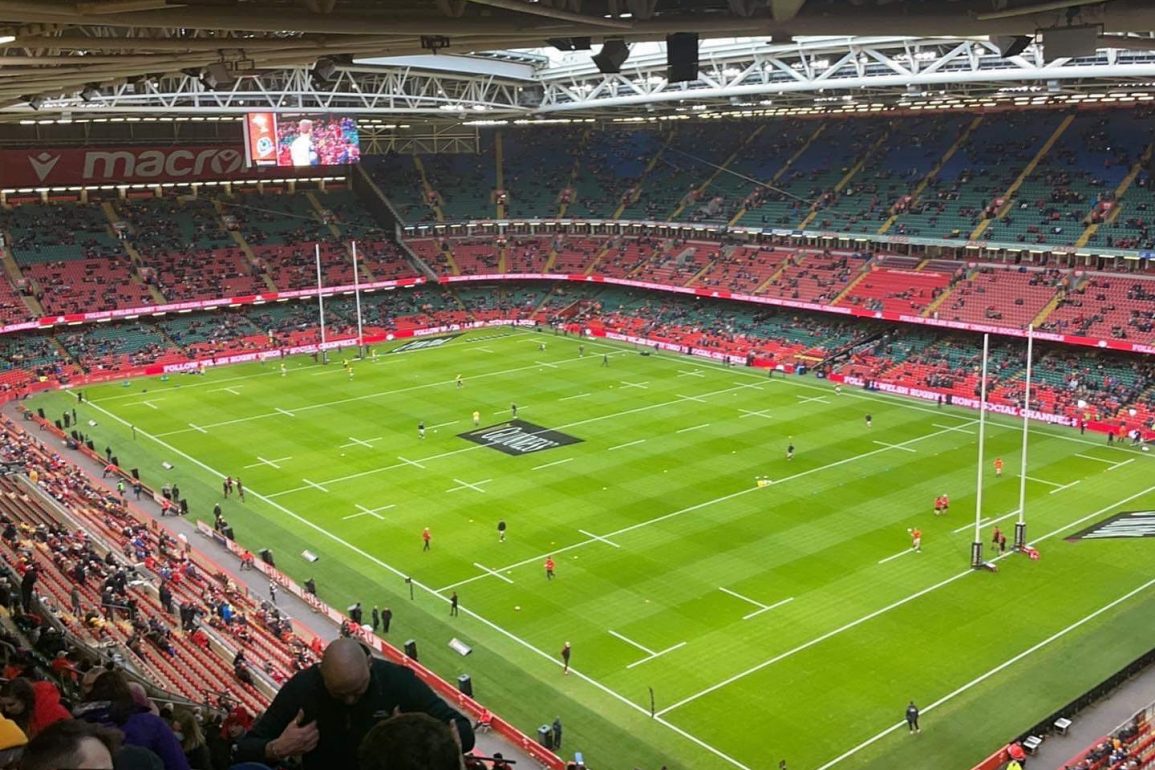Wales beat Scotland in a nail-biter and Cardiffian writer Eliot Raman Jones was there to watch … his first rugby game ever
I HAVE always been awful at rugby.
My dyspraxia and poor sight crippled my coordination skills so catching and throwing were out of the question from day one, and at school my thin frame meant that there was a very real chance of serious injury from a regular tackle.
Asthma prevented me from being a fast wing player, which essentially ended my chances of occupying any position on the team, and relegated me to a passive observer role.
I stopped playing rugby as soon as I could, hoping it’d be one of those things you remember learning at school but never become relevant in adult life – like the role of mitochondria in the cell or Pythagoras’ theorem.
When I found out I’d be studying journalism in Cardiff, I knew I would eventually have to cover rugby. At best, I was unfamiliar with the sport, and any trivia I knew was at least 10 years out of date (Jonny Wilkinson, anyone?).
Despite its importance to Welsh culture and it being a stone’s throw away from my university building, when my sister and her boyfriend suggested going to see a Six Nations game, I hesitated.
By taking a ticket to such a prestigious event in the rugby calendar, would I be depriving a “real fan” of the chance to do the same? Or was it a blessing in disguise, a second chance for me to get into a sport I may have been too hasty in rejecting the first time?
Reasoning that it would be an important cultural experience and I wouldn’t actually be on the pitch this time, I agreed.
My sister Maya and her boyfriend Gus did not share in my childhood dislike of the sport and were both more knowledgeable than me about the sport, so I had a chance to learn from them what I’d missed out on all these years.
Going to the Principality Stadium itself was amazing. I’d been to several large football stadiums before, but it was a different world inside Wales’ largest stadium. The pre-match rendition of Land of My Fathers sung by close to 70,000 Wales fans was very inspiring, and stirred my heart, even though the only Welsh thing about me is the Jones in my last name.

Bizarrely, I already had a Wales Rugby shirt, a gift from a family friend given to me when I was a baby. Looking back on it, they showed incredible foresight and vision to pick one that both represented the country I’d move to study in future and also to fit me 24 years later.
The rest of the pre-match preparation was full of sporting ritual – buying an unreasonably-priced pint of Guinness, climbing about 200 steps to take our seats, and awkwardly apologising to everyone else on our row as we shuffled past.
While waiting for the line-ups to be announced, I realised the only Wales rugby player I had heard of, Alun Wyn Jones, was injured. Flipping through the programme, I attempted to learn a whole new team of strangers in half an hour, but only really remembered Dan Biggar.
Helpfully, he scored most of the points.
As the only real point of comparison for me was football, learning the rules of rugby on the fly was a totally different ball game. Learning that fans of either team can – and do –sit together was crazy to me, my seat was between Scotland fan Gus on my right and another Scotland fan on my left.
Penalties were another sticking point – they are few and far between in football, but in this fixture, they happened a lot.
Dan Biggar’s match-winning drop goal on his 100th cap incited delirium all around the stadium, but I initially reacted with confusion.
“You can do that? Just kick it between the posts whenever you like?” I said.
“Yep,” my sister responded.
“Oh right. Go Wales!” I said.
It wasn’t an amazing reaction, and it earned a probably justified sigh and eye-roll from the Scotland fan on my left, but I was still impressed with myself. Wales were 17-14 up, and I was scaling this learning curve with amazing pace.

The full-time scenes were something else. Cheers in the stadium were amplified when the players came on the screens for post-match interviews, and reached peak levels when Wales lifted the Doddie Weir Cup.
This was another profound moment I ruined by loudly asking: “Lifting a cup already? They can’t have won the Six Nations yet, they’ve only played two games,” before being shushed again.
I clearly have a lot more to learn, but if learning means going to more games like that, then I’m looking forward to it.



